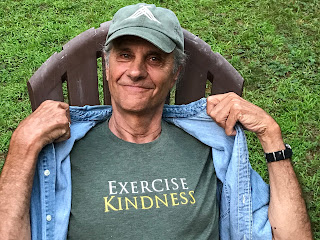Equality in Education at Quaker Schools
Today we have another student entry about Equality in Friends Schools. Imani focuses on one element of equality afforded to students at her school. She even begins the debate for us, on the exclusivity (or not) of Advance Placement (AP) courses. I welcome readers to post comments on this topic or simply enjoy reading!
By Imani
Stone, William Penn Charter School Sophomore
Quaker schools are unique to other schools in
that they have certain specific values that are focused on through the years.
These values are integrated into every aspect of a students school life. In
turn each student comes away from a Quaker education in some way impacted by
what was taught to them in their school life. I think one of the most important
Quaker principles is equality, because without it, only the privileged few
would be able to achieve the goals for which they set out. One of the most
important place for equality is in education because knowledge is, in fact,
power, therefore it is important that all children receive the same
opportunities in education. I feel that Quaker schools are good role model for
this system.
One way in which Quaker schools display
equality in its education is the lack of the tracking system many public high
schools have. This system of tracking, places students in a certain academic
level based on their grades, and once placed in a certain track, it is very
difficult to catch up or move up to a higher level. Because Quaker schools do
not have this system each and every student has the opportunity to move up to
an advanced or AP class, if they wished to go in that direction, because they
had the same (or very similar) learning experience as their fellow students.
Students who may have a learning disability,
or learn slightly different that the other students are given the aid needed,
specifically extra time on tests. These students are treated the same as the
rest of the students by their teachers. From what I have observed, students
treat their peers who have extra time with the same respect their teachers do.
In addition, it is not made obvious who has extra time and who does not. It is
done discretely, so that a major show does not ensue, and so that it may save
the child some embarrassment. They are not talked to in condescension or looked
down on, they are respected and, because of the principle of equality, have the
same opportunity as other students. In addition, it is not made obvious who has
extra time and who does not. It is done discretely, so that a major show does not
ensue, and so that it may save the child some embarrassment.
Of course there are the AP classes that
require an application and certain prerequisites in order to take the class.
This could be classified as an inequality, but as I said earlier because there
is no tracking system, every student has the opportunity to move up to advanced
classes and APs. Because different students have different interests and
different strengths, there is, at least at my school, an AP class for every
student. From AP Biology to AP Art History, there is a class for most student
interests. This shows equality, while highlighting and celebrating the academic
diversity of the student body.


It was interesting for me to see how Imani sees APs as open access for students. At our school it is up to departments to set acceptance standards for AP classes (some require certain GPAs, others just to write an essay of interest, others are just open to anyone). I would say there is a fair divide between Math and Science and Humanities folks about the role of APs and the ability of any student to sign up and take these courses.
ReplyDelete